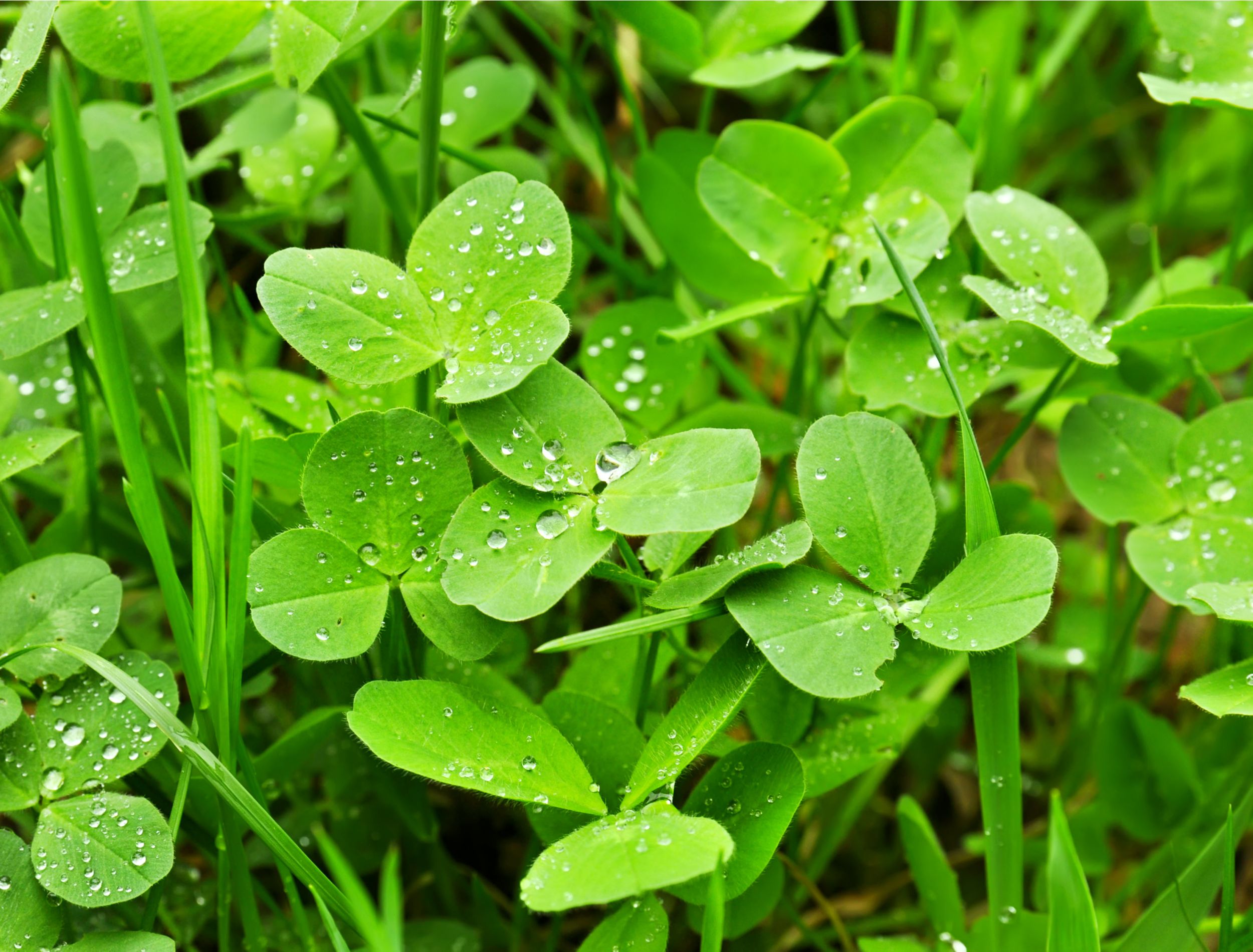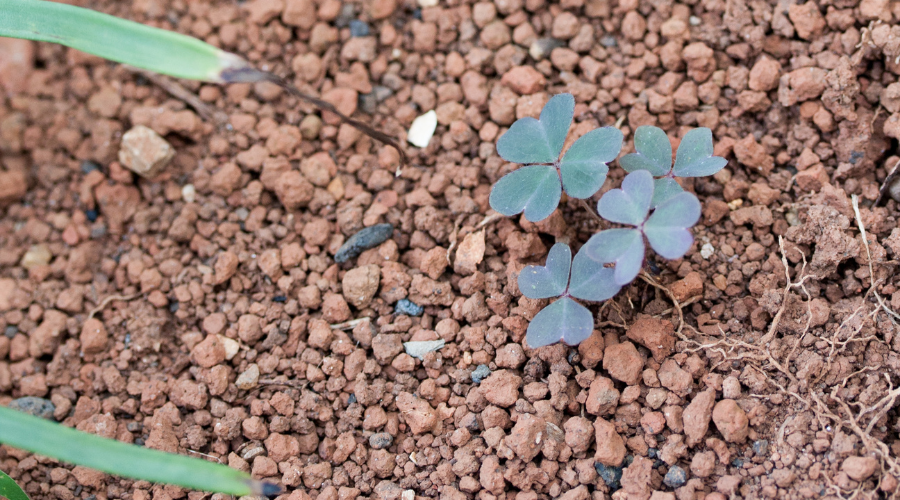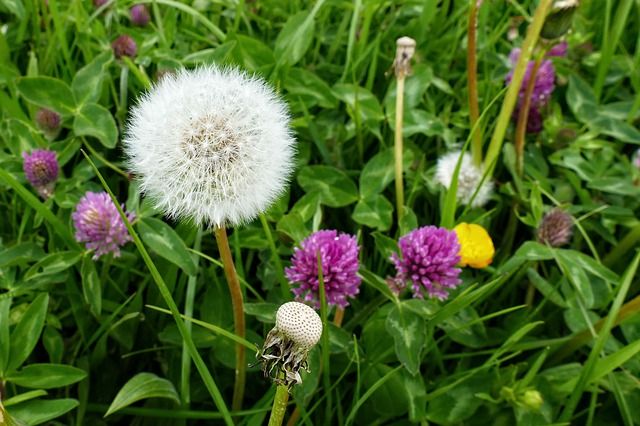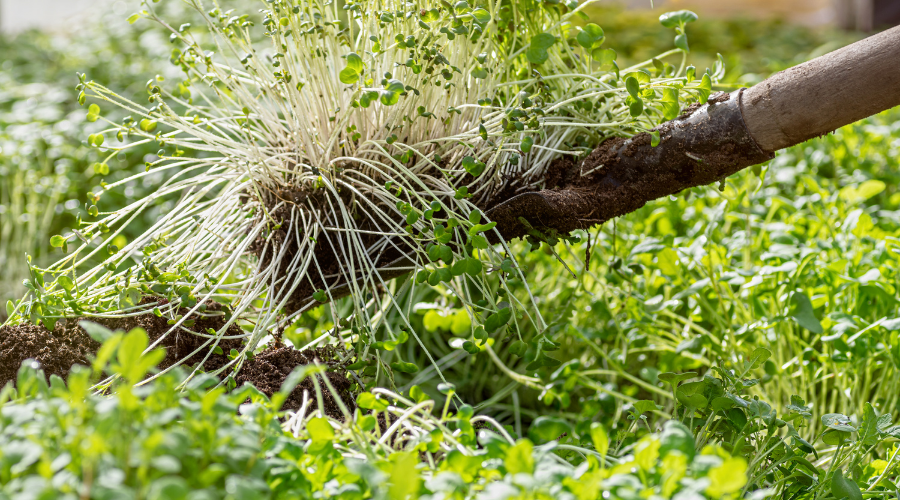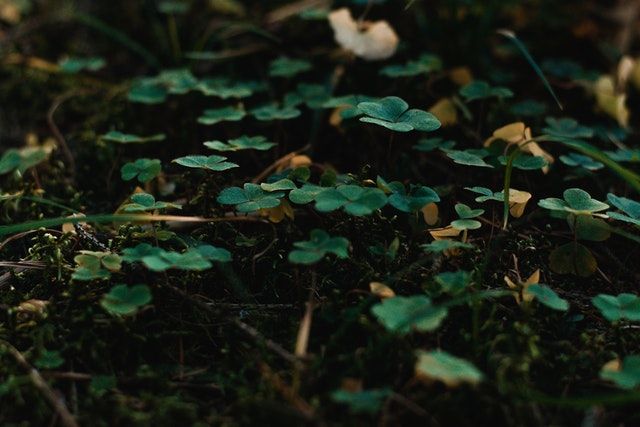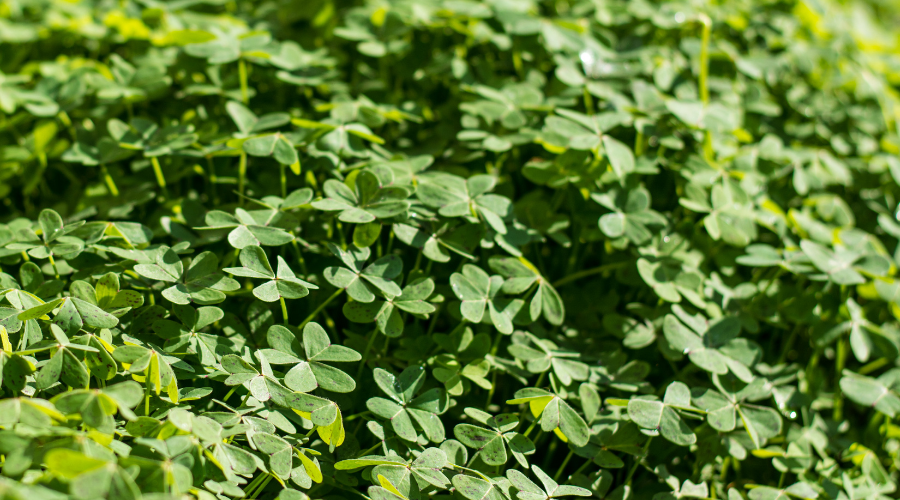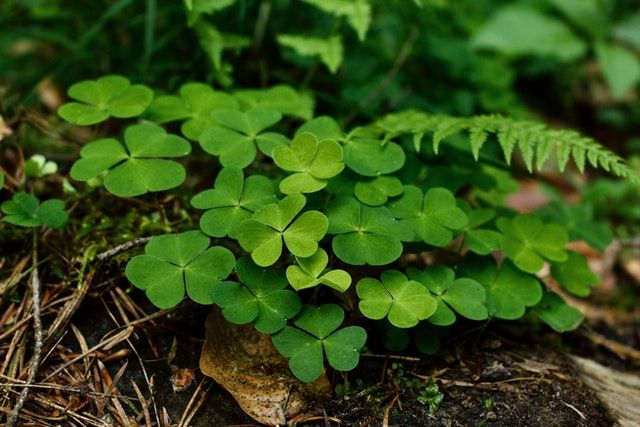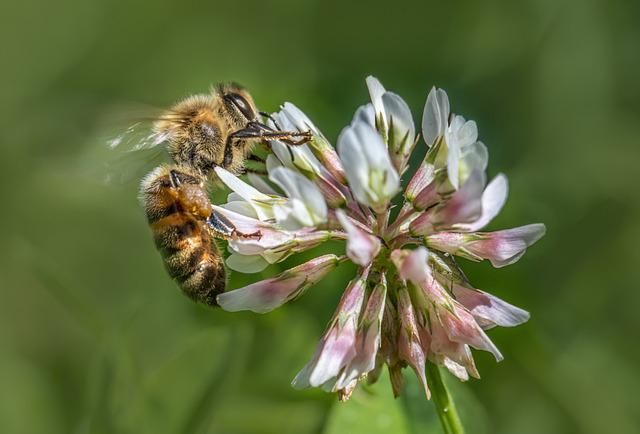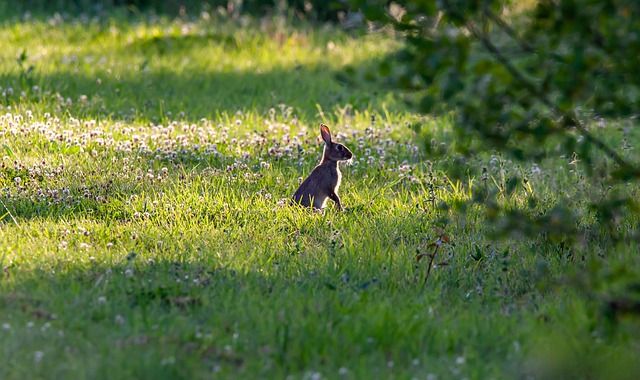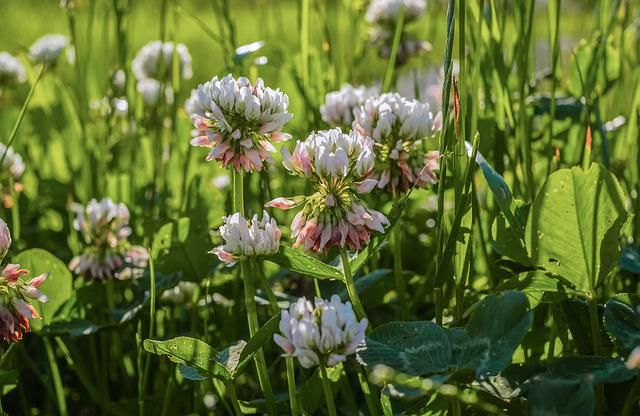Clovers are a common sight in many gardens due to their ability to spread and thrive in most climates. Many think of clover as somewhat of a weed, though a clover crop may fix your weed problem! This perennial filler is helpful between plants or as its garden bed.
Allowing clover to thrive in your yard provides many benefits to your soil and backyard space. Here are the top 8 reasons why you should not kill clovers in your yard:
Fix Poor Soil
Image credits: TalitaNicolielo via Canva
Clovers not only tolerate poor soil but also enrich and improve the quality of the soil over time. Planting clover can be especially beneficial in heavy clay soils. The roots of a clover crop break up the soil and provide aeration tunnels. These tunnels enable oxygen and water movement, as well as provide pathways through the soil for beneficial organisms.
Clovers are members of the legume family and make a great soil amendment. They amend nutrient-deficient soil by infusing it with nitrogen collected from the surrounding environment. Plant clover in your garden before a nitrogen-hungry crop like tomatoes for a prosperous harvest!
Smother Weeds
Image Credits: AlkeMade via Pixabay
Not only do clovers improve the quality of your soil, but they are also fantastic at suppressing weeds. Due to the high volume of plants per area, clovers smother even the hardiest and most persistent weeds. As such, the herbicide is not needed in a clover garden.
As clover germinates well during cooler months, sow your seeds early to cover your soil before the weeds germinate. Simply spread clover seed over a lightly tilled area of weedy soil. Allow the clover and any remaining weeds to pop up before eventually mowing. After a couple of mows, your pesky weed problem should be solved!
Make Excellent Green Manure
Image credits: Elena Grishina via Canva
Green manure refers to live crops grown to till them into the soil before the plants die. Tilling clover into your garden is a great way to give your soil a nitrogen boost while adding organic material. This living manure is a great way to enrich your soil and encourage healthy plant growth!
Used as Mulch
Image Credits: Irina Iriservia Pexels
Clovers make a great option for a cover crop. Use clovers as a beneficial feature to your no-dig garden. Instead of tilling them into the soil, let them be. Decomposing clovers breaks down quickly and adds organic material to the soil. Your plants will love the nutrient-rich compost provided by a clover cover crop!
Cover Bare Soil
Image credits: fixouillou via Canva
Bare soil, while being non-productive, is also prone to weeds and erosion. Create a more aesthetically pleasing space by adding a beneficial filler like a clover! Clovers have a dense root mass that prevents soil erosion while improving the overall soil quality. They are also a decorative and helpful addition to a garden under vining plants such as pumpkins and winter squash.
For the Environment
Image Credits: Elias Tigiser via Pexels
Clovers make a great natural fertilizer for plants. Their ability to infuse the soil with nitrogen means that no other nitrogen fertilizers are needed! Being a natural weed suppressor, there is no need to add herbicide or other harmful chemicals to your clover gardens.
Clovers are drought-resistant, which means they require much less water than a traditional grass lawn. This does not only help out the environment but also saves you the time and strain of adhering to a strict watering schedule!
Using a clover crop as part of the no-dig gardening method is a great way to sustain the natural ecosystem found within your backyard. Allowing clover to thrive enables the movement of beneficial organisms throughout your soil while enticing pollinators into your garden.
For the Bees!
Image Credits: Erik_Karits via Pixabay
Clover flowers are fantastic for attracting pollinators to your backyard space. Honeybees, in particular, are big fans of these nectar-rich flowers! Plant multiple varieties to add color and greenery to your yard while providing nourishment for honeybees, butterflies, and moths. These pollinators are crucial to a garden's evolution and continued prosperity. Let your clover spread to create a pollinator-friendly environment for some of nature's most beautiful pollinators!
Low-Maintenance, Hardy & Economical
Image Credits: TheOtherKev via Pixabay
Lessen or eliminate the need to mow by allowing clover to grow. Reaching a maximum height of 8 inches, clover beds are a low-maintenance option for your backyard space.
Clover is an adaptable crop that grows well in most climates. It remains a beautiful cool-green color throughout the hottest and driest periods of the season. Mildew, fungus, and blights that affect turf lawns are no match for clover!
Clover seeds are tiny and extremely cheap. You only need about 1/4 of a pound of dutch white clover seed to cover a 1000-square-foot lawn. Save money on fertilizer and herbicide by allowing clovers to naturally deliver nitrogen to soil and suppress weeds.
Common Types of Clovers
Image Credits: Couleur via Pixabay
There are many varieties of clover which boast slightly different foliage and colored blooms.
Red clovers are a mildly aggressive plant that produces medium-sized, purplish-red blooms. Honeybees go nuts for this nectar-rich variety!
Dutch white clovers are a common cover crop with large leaves and white flowers. This pleasing variety makes a great living mulch around your existing plants.
Crimson clover's bright red flowers are great for attracting pollinators. This variety also makes amazing green manure as it doesn't overwinter well. Till crimson clover into your garden in the fall to set yourself up for soil success the next season!
Sweet clover, though not a true clover, makes a perfect soil cover around vining plants. It looks similar to alfalfa and gives off a sweet aroma. This is a great clover variety to restore compacted soil. Using its long taproots, sweet clover helps break up the soil to a depth of up to 5 feet.
To Sum It Up
Clover is an aesthetically pleasing soil enricher that requires little-to-no maintenance. It can coexist beautifully alongside regular grass or be used as a filler between plants in your garden. Clover delivers nitrogen into your soil while improving its texture with organic material.
Encourage the natural ecosystem found in your backyard to thrive by allowing your clover to live and spread. Not only will its flowers entice pollinators, but its roots will also aerate your soil and provide pathways for beneficial organisms.
Overall, clover is a cheap, pain-free way to improve the quality of your soil and keep your other plants happy and healthy!

